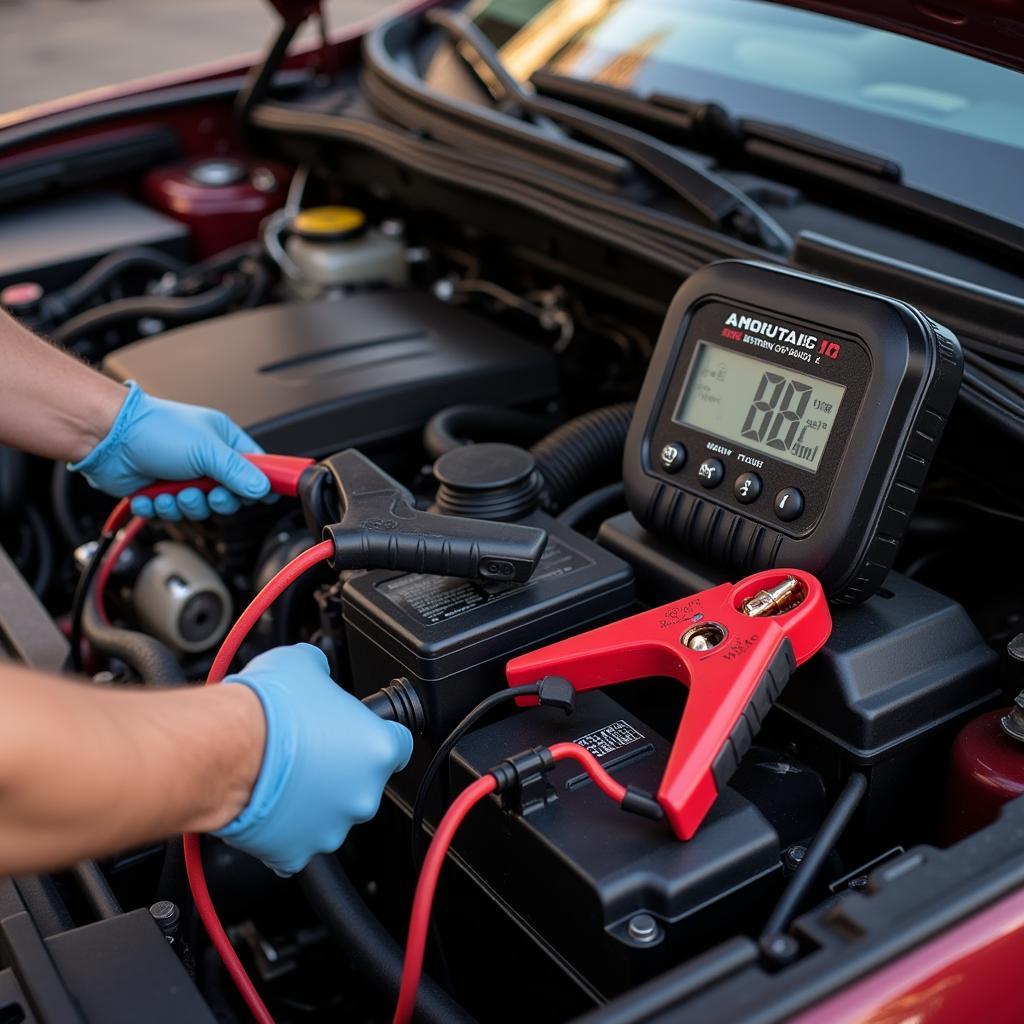Knowing the best time to take your car for maintenance can save you money, prevent unexpected breakdowns, and keep your vehicle running smoothly for years to come. While it’s tempting to skip maintenance to save a few bucks, ignoring potential issues can lead to costlier repairs down the line.
This comprehensive guide will discuss the optimal times for car maintenance, helping you stay ahead of potential problems and keep your car in top shape.
Understanding Your Car’s Maintenance Needs
Every car is unique, and understanding your car’s specific maintenance requirements is crucial. The best place to start is with your owner’s manual. It outlines a recommended maintenance schedule tailored to your car’s make and model.
The schedule typically includes:
- Regular oil and filter changes: This is crucial for engine lubrication and performance.
- Tire rotations and pressure checks: Ensures even tire wear and improves fuel efficiency.
- Brake inspections and pad replacements: Essential for safe stopping distances.
- Fluid top-offs: Maintaining proper levels for coolant, transmission fluid, brake fluid, and windshield washer fluid.
- Air filter replacement: Crucial for engine performance and fuel economy.
- Spark plug replacement: Impacts engine performance, fuel efficiency, and emissions.
Sticking to this schedule ensures all essential components are inspected and maintained at the right intervals, reducing the risk of unexpected issues and costly repairs.
Factors Influencing Maintenance Timing
While the owner’s manual provides a baseline, several factors can influence the best time to take your car for maintenance:
1. Mileage: Your car’s mileage is a significant factor. High-mileage vehicles require more frequent maintenance than those driven less frequently.
2. Driving Conditions: Driving in harsh conditions like extreme temperatures, dusty environments, or heavy traffic can put extra strain on your car, requiring more frequent maintenance.
3. Driving Style: Aggressive driving habits, like frequent hard braking or acceleration, can also lead to faster wear and tear, necessitating more frequent maintenance checks.
4. Vehicle Age: Older cars might require more frequent checkups and preventative maintenance than newer models due to general wear and tear over time.
Beyond the Scheduled Maintenance: Warning Signs to Watch For
While adhering to your car’s maintenance schedule is crucial, it’s equally important to be aware of warning signs that indicate your car might require immediate attention. These include:
-
Unusual Noises: Any new or unusual noises like squealing, grinding, clicking, or knocking should be inspected by a mechanic immediately.
-
Warning Lights: Never ignore dashboard warning lights like the “check engine” light or the “maintenance required” light.
-
Fluid Leaks: Check your parking spot for any fluid leaks. Different colored fluids can indicate different problems.
-
Changes in Performance: A decrease in fuel efficiency, difficulty starting, engine misfires, or a rough idling engine are all signs of potential problems that require immediate attention.
Seasonal Maintenance: Preparing for Different Weather Conditions
Different seasons can impact your car’s performance. Scheduling maintenance checks before summer and winter can help prepare your car for extreme weather conditions:
Spring/Summer Maintenance:
- Check and recharge the air conditioning system: Ensures optimal cooling during hot weather.
- Inspect and flush the cooling system: Prevents engine overheating.
- Check tire pressure: Adjust as needed for fluctuating temperatures.
Fall/Winter Maintenance:
- Check battery health: Cold temperatures can weaken batteries.
- Inspect and replace worn wiper blades: Crucial for clear visibility in snowy or icy conditions.
- Consider switching to winter tires: Provides better traction on snow and ice.
The Cost of Neglecting Car Maintenance
Neglecting regular maintenance might seem like a way to save money in the short term, but it can lead to significant expenses down the line:
- Costly Repairs: Minor issues, when ignored, can escalate into major problems requiring expensive repairs.
- Decreased Fuel Efficiency: Neglected maintenance can lead to reduced fuel economy, costing you more at the pump.
- Reduced Vehicle Lifespan: Regular maintenance can significantly extend the lifespan of your vehicle.
Expert Insight
“Many car owners underestimate the importance of preventative maintenance,” says John Smith, a senior automotive technician at ABC Auto Repair. “Sticking to your car’s maintenance schedule and addressing warning signs promptly can save you a lot of trouble and expense in the long run.”
Conclusion
Knowing the best time to take your car for maintenance is key to keeping it in optimal condition. By understanding your car’s specific needs, paying attention to warning signs, and scheduling seasonal checks, you can avoid costly repairs, enhance your safety, and enjoy a smoother ride for years to come.
Remember, your car is a significant investment. Taking care of it is an investment in its longevity and your peace of mind. For expert advice and reliable car maintenance services, contact AutoTipPro at +1 (641) 206-8880 or visit our office at 500 N St Mary’s St, San Antonio, TX 78205, United States.
FAQs
1. How often should I get an oil change?
It’s best to consult your owner’s manual for specific recommendations. However, a general rule of thumb is to change the oil every 3,000 miles or every three months, whichever comes first.
2. What does the “check engine” light mean?
The “check engine” light can indicate a range of issues, from a loose gas cap to a more serious engine problem. It’s best to get it checked by a mechanic to diagnose and address the issue.
3. Can I do car maintenance myself?
While some maintenance tasks, like checking tire pressure or changing windshield wipers, can be done at home, it’s recommended to leave more complex procedures to qualified mechanics.
4. How do I find a reliable mechanic?
Ask for recommendations from friends and family or check online reviews. Look for mechanics certified by reputable organizations like the ASE (National Institute for Automotive Service Excellence).






Leave a Reply